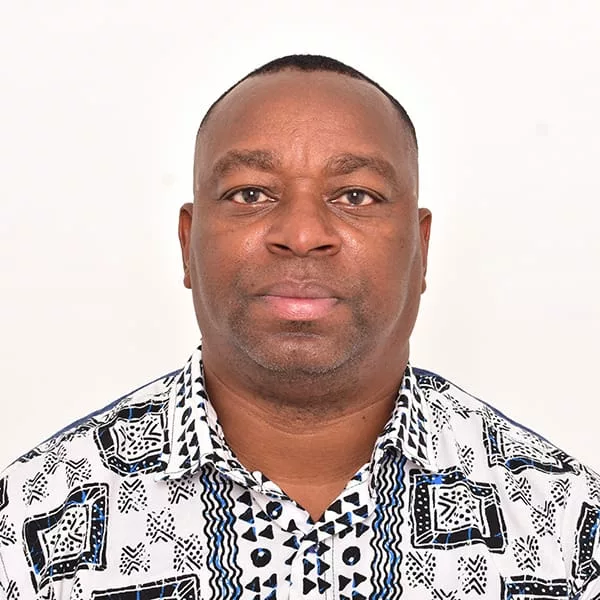|
Getting your Trinity Audio player ready...
|
Writes Dr. Antony Chapoto
I am representing ANAPRI at the AU Extraordinary Summit on the Comprehensive Africa Agriculture Development Programme (CAADP) Strategy and Action, taking place in Kampala, Uganda, from January 9 to 11, 2024. Our network is dedicated to supporting the AU and member states by providing essential data and evidence to guide programme implementation.
Our research centers will continue collaborating with both the public and private sectors to ensure the next decade of CAADP yields impactful outcomes, unlike the previous two. Africa has clear priorities, but progress has often been hindered by external shocks, geopolitical tensions, and insufficient political and public sector will to fully embrace commitments at the national level.
Recently, I participated in a closed-door workshop focused on US and Chinese investments in Africa, alongside a distinguished group of African experts from various fields. Our collective message was clear: Africa has its vision and is not non-negotiable. Our development blueprint is articulated in Agenda 2063: The Africa We Want, supported by frameworks that emphasize African Agency and partnerships built on mutual trust and respect.
For the agriculture and food security sectors, CAADP remains the definitive blueprint for inclusive growth, enhanced food security, and resilience. Both African governments and external partners must align their actions with CAADP, avoiding fragmented approaches. Key initiatives such as the African Continental Free Trade Agreement (AfCFTA) and the Fertilizer and Soil Health Action Plan must be integrated into national plans and implemented as foundational pillars of this agenda.
The importance of evidence-based policymaking cannot be overstated. African leaders must champion AU-level commitments and prioritize their domestication to drive meaningful change. Bilateral agreements should complement—not undermine—continental priorities and commitments.
ANAPRI’s 11th Annual Conference, held in Dakar, Senegal, from November 26 to 28, 2024, under the theme “From Policy to Implementation: Strengthening Local Institutions for Sustainable Food Systems Transformation in Africa,” echoed these sentiments. The conference highlighted the critical role of local institutions in translating policy frameworks into impactful action. Investments from global partners are essential but should support Africa’s vision and strategic frameworks rather than dictate them.
In the face of global geopolitical tensions, the message is clear: Africa must own its narrative and strategic vision instead of being ‘pawn’ in external rivalries. Now is the time to foster partnerships that respect Africa’s vision of prosperity and self-reliance.
The frameworks to achieve these goals exist. Securing political and technical commitment, alignment, and action is essential to realizing the full promise of a prosperous, self-sufficient Africa.
About the Author
Dr. Antony Chapoto is a passionate agriculture and development economist who has conducted research on agriculture and food systems in Sub-Saharan Africa. He has published numerous articles in peer-reviewed journals and co-authored book chapters, working papers, advisory notes, policy briefs, and infographics. Currently, he is the Executive Director at the Africa Network of Agricultural Policy Research Institutes (ReNAPRI/ANAPRI), where he previously served as the Technical Chair at the Secretariat of the Network.
In this role, he coordinated ANAPRI’s activities during the implementation of the Comprehensive Africa Climate Change Initiative (CACCI 1.0) in two pilot countries, Zambia and Ghana. He also led research activities to contribute to the Africa Fertilizer and Soil Health Summit. From 2014 to 2023, he served as the Director of Research and Innovation at the Indaba Agricultural Policy Research Institute (IAPRI). Chapoto played a significant role in establishing IAPRI in 2011 and assumed the position of Research Director in 2014.
Prior to his time at IAPRI, he was a Research Fellow at the International Food Policy Research Institute (IFPRI) from 2012 to 2014 in the Development Strategy and Governance Division. Before that, he was an Associate Professor in the Department of Agricultural, Food, and Resource Economics at Michigan State University, stationed in Zambia with the department’s Food Security Research Project as the USAID Chief of Party and Research Coordinator.
His research interests are focused on agricultural development issues in Africa, including climate change and natural resources, agricultural technology and productivity, smallholder farm commercialization, home-grown medium- and large-scale farmers, and food markets and policy. Throughout his career, he has dedicated himself to conducting research and engaging policymakers and agriculture stakeholders on key policy issues. He has conducted various outreach and capacity-building activities to promote sustainable policy change and development in Sub-Saharan Africa. Antony holds a Ph.D. in Agricultural Economics from Michigan State University, a Master’s in Agricultural Economics from the University of Zimbabwe, and a Bachelor’s in Agriculture and Natural Resources from Africa University.






